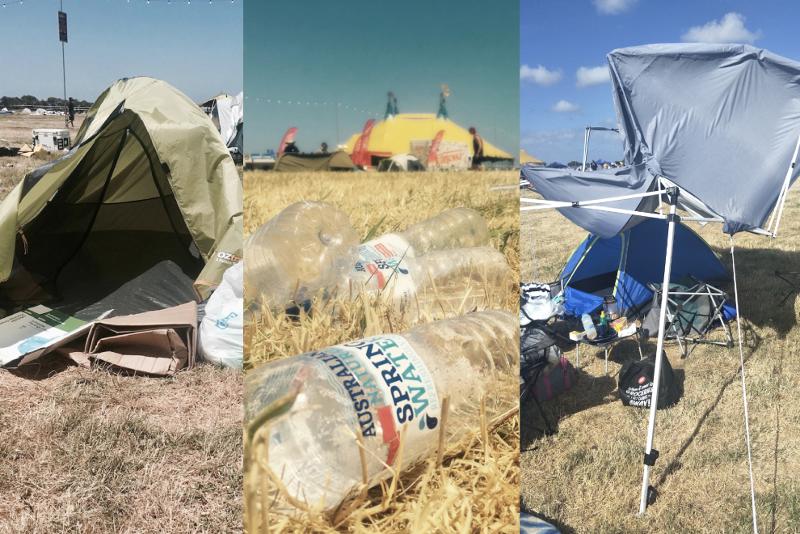With each music festival season come new green initiatives. This summer, the first shot fired is Camping Buddy from Green Music Australia. Find out how these festivals are prioritizing sustainability and making a positive impact on the environment.
The Environmental Impact of Festivals
Understanding the environmental impact of festivals and the need for sustainable practices.
Music festivals are known for their lively atmosphere and unforgettable performances, but they also leave behind a significant environmental footprint. From waste generation to carbon emissions, festivals can have a detrimental impact on the environment.
However, festival organizers and attendees are becoming increasingly aware of the need for sustainable practices. By implementing green initiatives and promoting eco-friendly behaviors, festivals are striving to minimize their environmental impact and create a more sustainable future.
Green Music Australia: Leading the Way
Exploring the efforts of Green Music Australia in promoting sustainability in the music festival industry.
Green Music Australia, a non-profit organization, is at the forefront of promoting sustainability in the music festival industry. Their latest initiative, Camping Buddy, is a free web app that provides festival-goers with tips on sustainable camping and packing.
By encouraging attendees to make smarter packing decisions and borrow items instead of buying disposable ones, Green Music Australia aims to reduce the amount of camping equipment that ends up in landfills each year. Their partnership with festival organizers and universities demonstrates their commitment to creating a greener festival experience.
Partner Festivals: Leading by Example
Highlighting the efforts of partner festivals in implementing green initiatives and promoting sustainability.
Strawberry Fields, Splendour In The Grass, and Lost Paradise are among the partner festivals that have embraced sustainability and implemented green initiatives.
For example, Strawberry Fields has introduced the Rewash Revolution, a reusable crockery system that eliminates single-use items. They also partner with Treecreds to offset carbon emissions and have composting toilet systems to reduce waste.
Lost Paradise has the B-Alternative Repair Café to salvage camping gear and offers Tent Village for patrons to hire budget tents. They also have daily campsite cleanups and promote responsible waste management.
These festivals serve as inspiring examples of how the music festival industry can prioritize sustainability and make a positive impact on the environment.
Splendour In The Grass & Harvest Rock: Going Green
Exploring the sustainable practices implemented by Splendour In The Grass and Harvest Rock festivals.
Splendour In The Grass has partnered with FEAT. Live for Solar Slice, a project that funds the switch to clean power onsite. They also prioritize waste management by using recyclable and compostable materials and implementing a cup return system.
Harvest Rock, on the other hand, supports local reforestation and bush regeneration projects. They have also partnered with the First Nations Clean Energy Network to promote renewable energy projects and provide employment opportunities for First Nations communities.
These festivals demonstrate that sustainability can be integrated into every aspect of the event, from energy sources to waste management.
Green Trophies: Recognizing Environmental Efforts
Highlighting Australian festivals that have received international recognition for their environmental initiatives.
Australian festivals such as Falls, Bluesfest, Rainbow Serpent, and Island Vibe have been acknowledged internationally for their environmental efforts.
For example, Falls Festival successfully reduced its carbon footprint by promoting car-sharing and recycling waste. Bluesfest launched the #BYOBBottle campaign and actively recycles and donates food to the homeless.
Woodford Folk Festival has also embraced sustainability by incorporating solar energy into their power supply and implementing water harvesting and storage systems.
These festivals serve as shining examples of how the music festival industry can prioritize sustainability and make a positive impact on the environment.
Conclusion
Music festivals in Australia are taking significant steps towards sustainability and minimizing their environmental impact. Through initiatives like Camping Buddy and partnerships with organizations like Green Music Australia, festivals are promoting eco-friendly practices and encouraging attendees to make greener choices.
Partner festivals such as Strawberry Fields, Splendour In The Grass, and Lost Paradise are leading by example with their green initiatives, from reusable crockery systems to composting toilets. Splendour In The Grass and Harvest Rock have also implemented sustainable practices, including clean power sources and support for renewable energy projects.
Australian festivals like Falls, Bluesfest, and Woodford Folk have received international recognition for their environmental efforts, showcasing the industry's commitment to sustainability. These festivals serve as inspiring examples of how music festivals can prioritize the environment while still providing an unforgettable experience.
By embracing sustainability and implementing green initiatives, music festivals are not only reducing their environmental footprint but also raising awareness and inspiring positive change among attendees. With continued efforts, the music festival industry can lead the way in creating a more sustainable future.
FQA
How can attendees contribute to sustainability at music festivals?
Attendees can contribute to sustainability at music festivals by packing responsibly, using reusable items, and participating in recycling and waste management programs. They can also support festival initiatives and choose eco-friendly transportation options.
Are all music festivals in Australia implementing green initiatives?
While not all music festivals in Australia have implemented green initiatives, there is a growing trend towards sustainability in the industry. Many festivals are recognizing the importance of minimizing their environmental impact and are taking steps to incorporate eco-friendly practices.
What are some other ways music festivals can promote sustainability?
In addition to implementing green initiatives, music festivals can promote sustainability by partnering with local environmental organizations, offering educational workshops on eco-friendly practices, and supporting renewable energy projects. They can also encourage attendees to carpool or use public transportation to reduce carbon emissions.

